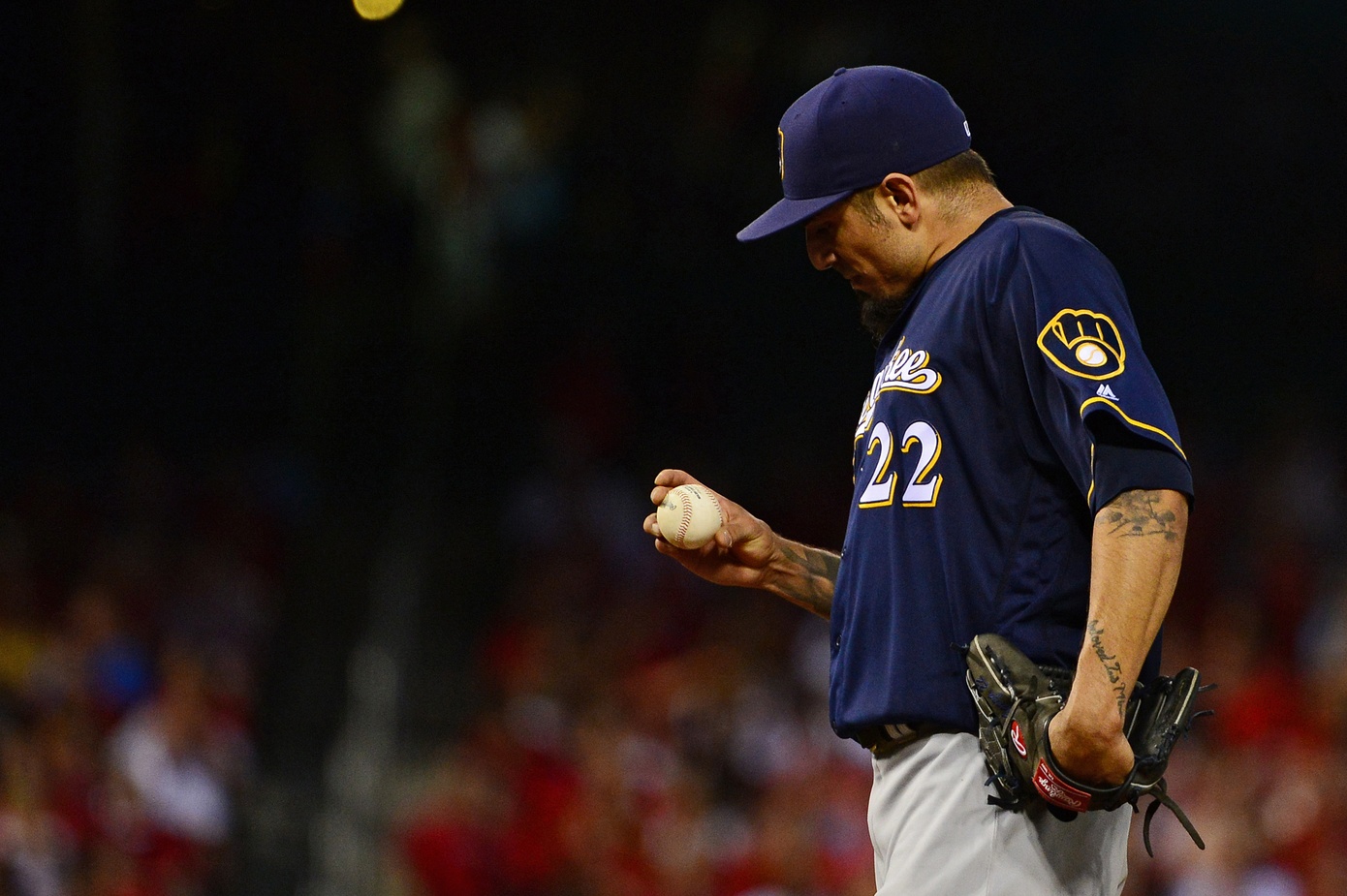As we all know at this point, the Brewers are rebuilding. Generally, that means the interesting moves are happening in the minor leagues and on the fringes, as the club looks to develop its top minor leaguers and find bargains off the scrap heap. So it is with good reason that the rebuild (and much of the discussion around it) is focused on the organization’s top prospects and some of the dumpster diving that GM David Stearns has done.
But something else that has generally gone unnoticed is the overall lack of long-term contracts that the Brewers have to deal with. Ryan Braun and Matt Garza are the only players the Brewers owe money to next season. That doesn’t mean they are the only players who will be returning from the 2016 club, obviously, but all the rest of those guys are arbitration-eligible or younger, so they remain relatively cheap.
There are a couple reasons that this long-term flexibility exists. First and most importantly, the Brewers have not been major players in the free agent market. Braun and Garza are the two notable exceptions, as the rest of the team’s outside acquisitions were brought in for seven-figure rather than eight-figure salaries. Braun, of course, was locked up to a massive extension to keep him off the market, and Garza was signed before the 2014 season when the team was more optimistic about its future and also had recently gave up a draft pick to sign Kyle Lohse.
In the intervening years, though, the team has avoided taking high-risk gambles on free agents and thus the books are clean in the coming years. This has gone generally unnoticed because the Brewers weren’t as blatant about it as the Astros were, but the last two years (which encompasses both the Stearns and Doug Melvin regimes) have been noticeably and beneficially quiet.
The second reason the Brewers have such flexibility is their lack of development in the last five years. Players who made their big-league debuts in 2010 and 2011 would be hitting free agency and thus due extensions, but the Brewers simply don’t have any of those now that Jonathan Lucroy is gone. This obviously is not ideal, as no team wants to be able to hold up a dearth of talent as a positive. However, that ship has already sailed—the team can’t go back in time and draft better—and the system is now so loaded with talent that the dark years of even 2015 seem very far away.
What this does do is put the Brewers in an excellent position going forward. They are still not going to be in the market for the league’s top free agents; Edwin Encarnacion is not going to be playing in Milwaukee next year. However, it does give them the ability to absorb salary when needed. In 2015, the Braves bought pitching prospect Touki Touissant from the Diamondbacks simply by also absorbing the $10 million left on Bronson Arroyo’s deal, and the Brewers have now put themselves into a position to do something similar if the opportunity arises. Trades like that are an easy and cheap way for lower-payroll teams to acquire minor league talent.
It also means that the Brewers have plenty of payroll space available for the young players if/when they prove deserving of an extension. The Brewers should have several players on Baseball Prospectus’s Top 101 Prospects list when it comes out this offseason, and not all of them will work out. But if one of them becomes a star and a couple become solid big leaguers, the club has enough long-term financial flexibility to be able to offer them worthwhile extensions. For a small-market team, that ability is important, as the only way Milwaukee will be able to build a winner is to develop it from within.
The Brewers will also have the option of jumping on a free agent if they so choose, but there doesn’t seem to be a way to predict who that might be at this point. Depending on when David Stearns thinks his team’s competitive window is, the club may look to bring in a third baseman (if Jonathan Villar regresses and/or is moved to second base) or a starting pitcher in free agency in the next year or two. The lack of long-term contracts on the books allows them to do that.
Overall, the Brewers are in excellent shape for a rebuilding team. They have a stocked farm system and no long-term contracts that they need to unload. The team can continue with its current path of stockpiling young players and taking on low-risk bargains, but they can also make a splash when necessary. This level of forward thinking and long-term planning can only be a positive, and the Brewers should benefit from it.

1 comment on “The Value of the Brewers’ Long-Term Flexibility”